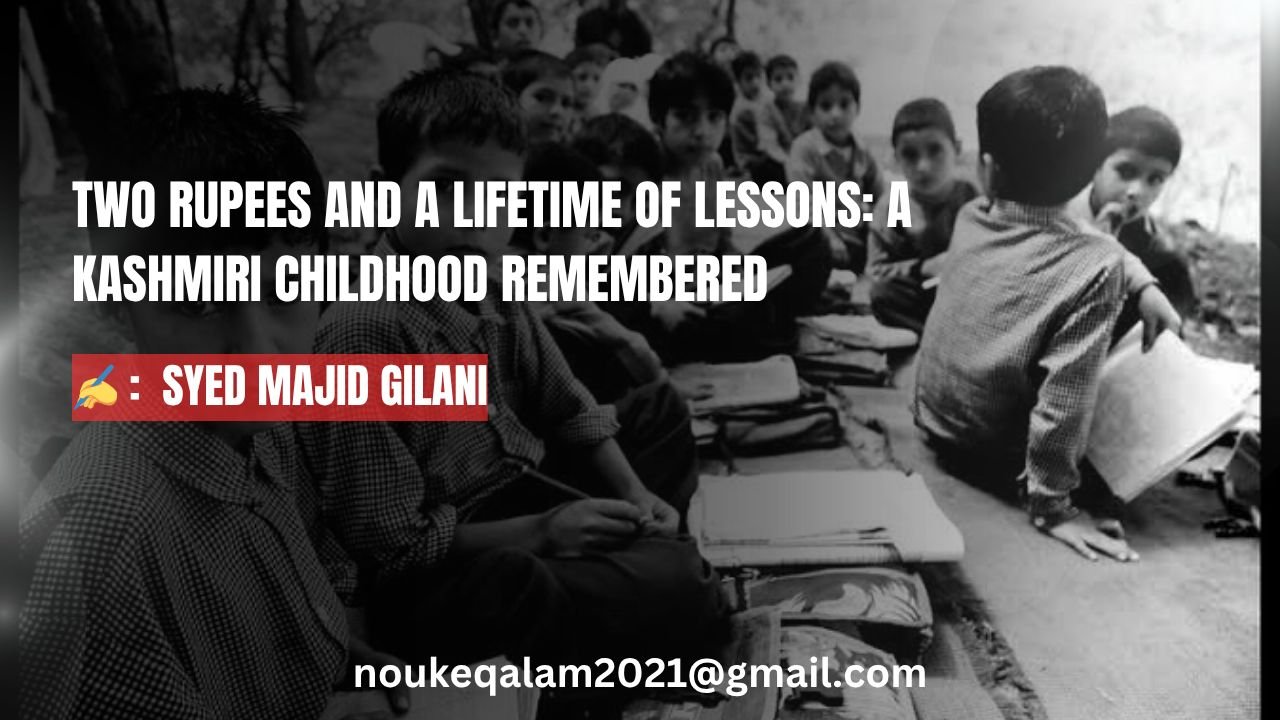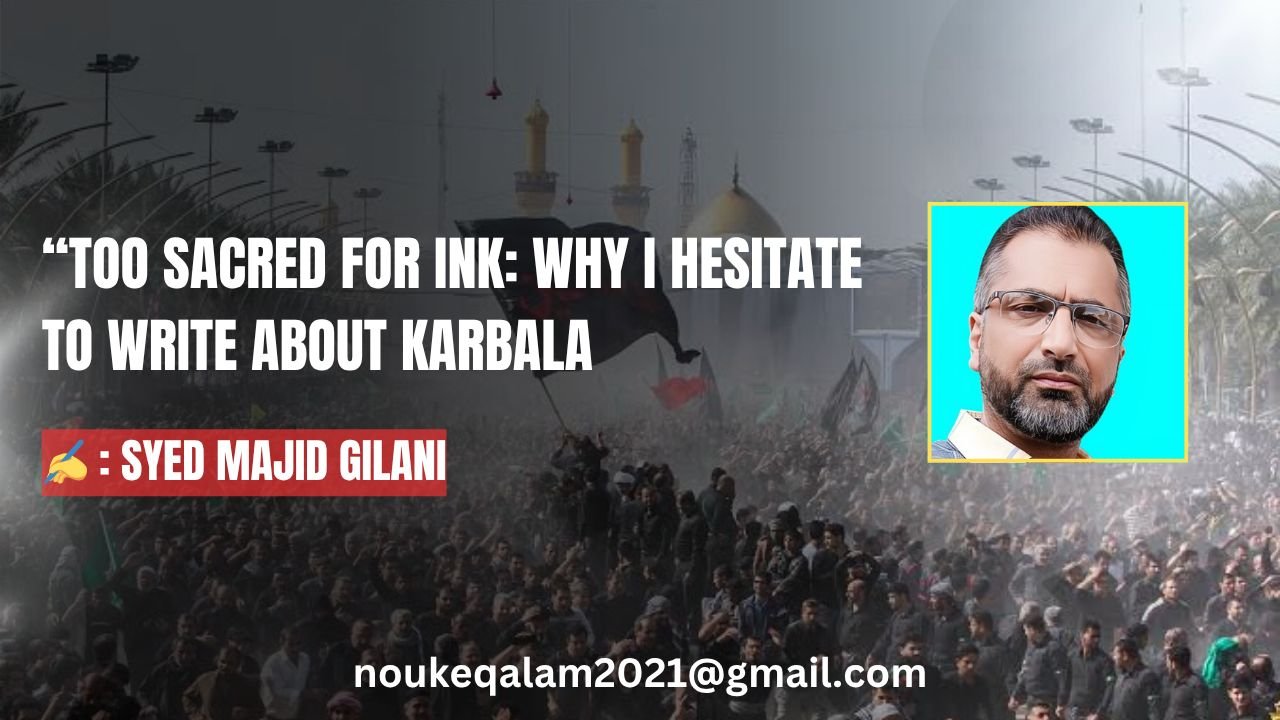✒️:. Syed Majid Gilani
It was January 2024 when a colourful wedding invitation card reached me from my young colleague, Ravi. Along with the card came a personal phone call, where Ravi warmly extended the invitation not only to me but also to another colleague, Mushtaq Ahmed.
Neither Mushtaq nor I had ever attended a Kashmiri Pandit wedding before. This was our first chance, and the thought of witnessing their traditions closely filled us with eagerness.
On the wedding day, we left early in the morning for Nowgam railway station in Srinagar. At that time, the train service was available only up to Banihal. The journey through green fields, apple orchards, and vast paddy lands carried us forward with quiet excitement.
At Banihal, like other passengers, we stepped down and walked to the nearby bus stand. The place was vibrant with the usual calls of buses, cabs, and tempo travellers looking for passengers. We boarded a Tavera cab and continued our journey towards Jammu.
At Nagrota, on the national highway, Ravi’s cousin Rajiv was already waiting to receive us. Ravi had thoughtfully arranged everything to ensure our comfort. From there, we were taken to the TRT Migrant Camp at Nagrota.
It was my first ever visit to such a camp. My mind instantly travelled back in time — I was in eighth grade when Kashmiri Pandits had to migrate from the valley. An entire community was uprooted overnight. Thousands of families left behind their homes, lands, orchards, and cattle. What they carried with them were only the clothes on their bodies and their hard-earned educational certificates. Standing there now, in a migrant camp that bore witness to that painful history — but for the purpose of attending a wedding — filled me with mixed emotions: sorrow for what was lost, yet gratitude for the resilience that kept their culture alive.
The warmth of Ravi’s family, however, dissolved the heaviness of those thoughts. His parents received us with genuine affection. In the Janj Ghar inside the camp, we were served noon chai with snacks. The familiar taste of that salty tea brought back a sense of belonging, reminding me of our deeply shared cultural roots.
As the ceremonies unfolded, I noticed how closely our customs resembled one another. The wanwun, the gyawun, the rituals, and even the saffron-flavoured kehwa — all carried the fragrance of a common heritage. There were only a few small differences; otherwise, everything felt strikingly the same.
The main function took place at Eden Farm, a spacious marriage hall nearby. Ravi himself guided us to the large kitchen, where traditional cooks from Kishtwar were preparing the feast. The menu was purely vegetarian — nadru yakhni, chuk wangan, chaman tamatar, dum aloo, haakh, and several other delicacies. Alongside, there were stalls for aloo paratha, papads, champ, gol gappa, sweets like gulab jamun and pastries, salads, soups, and chutneys. The aroma that filled the air was enough to lift spirits and gladden hearts.
In the afternoon, the matamaal ceremony was observed, where maternal relatives were received with respect and warmth. The Kashur gyawun singers, accompanied by a full orchestra from Srinagar, created an enchanting atmosphere. Their melodious voices reminded me once again that our language, culture, and traditions are threads woven from the same fabric.
When the celebrations drew to a close and we prepared to leave, a silent thought lingered in my heart: how incomplete the valley feels without its Pandit brethren, and how beautiful it would be if one day they return to their homeland — not as guests, but with dignity, peace, and permanence. Their presence is not just part of Kashmir’s history; it is part of its soul.
Syed Majid Gilani is a government officer by profession and a storyteller by passion. He writes about family values, moral wisdom, pain, real-life memories, and emotions. He can be reached at syedmajid6676@gmail.com





